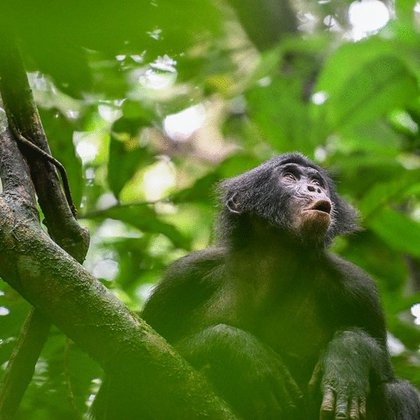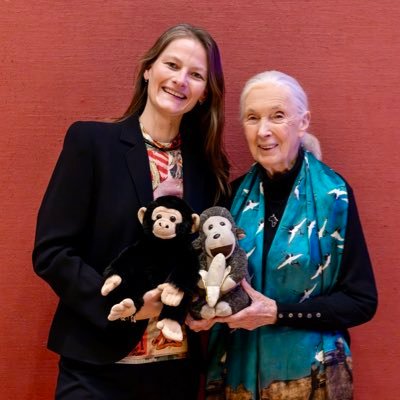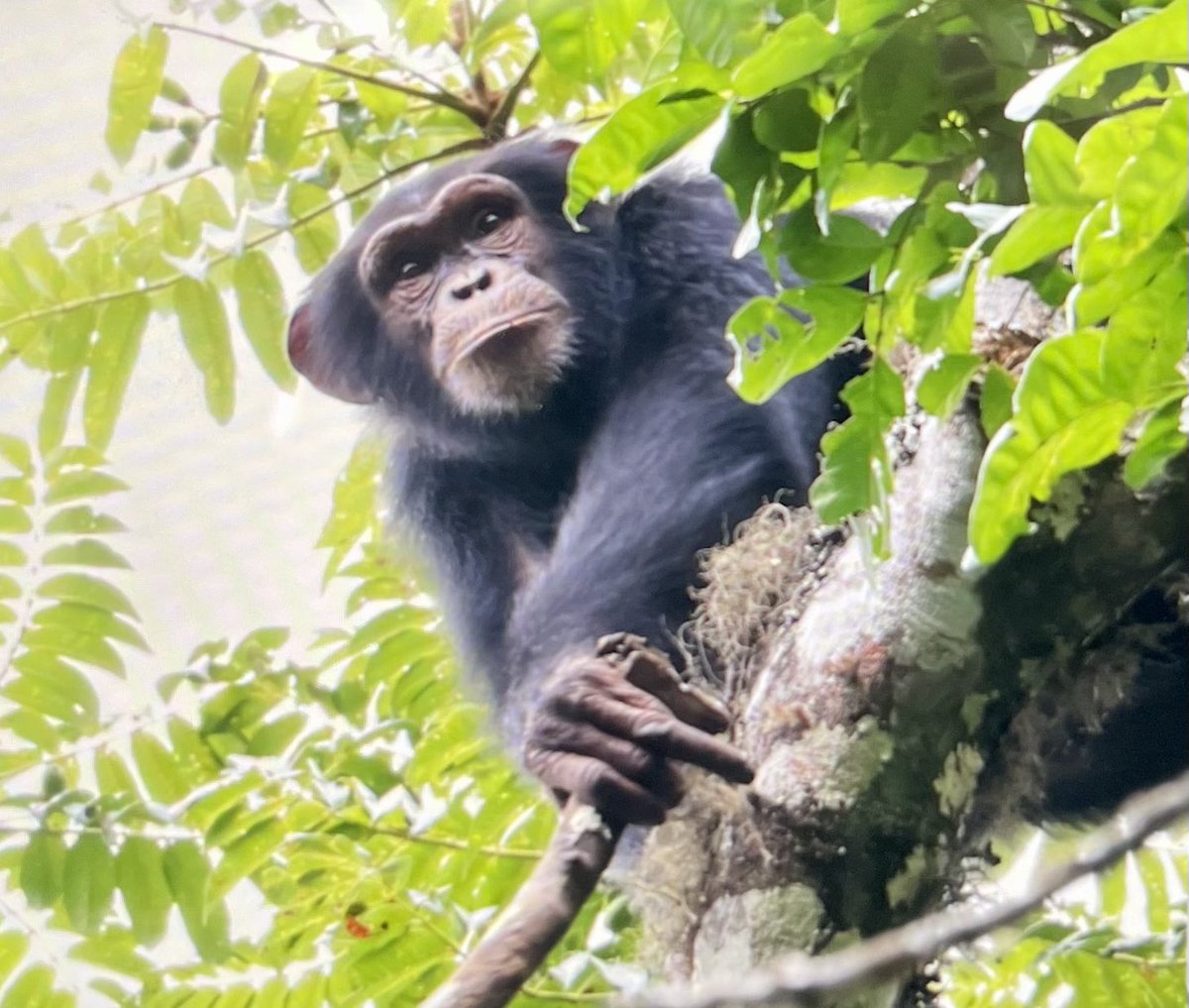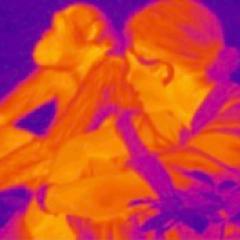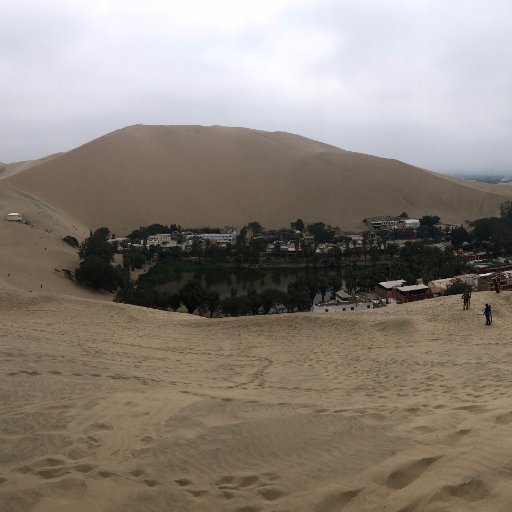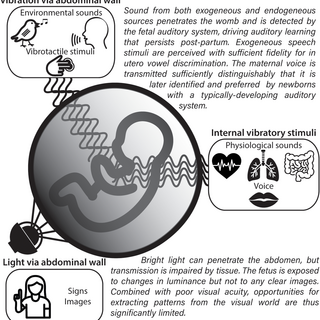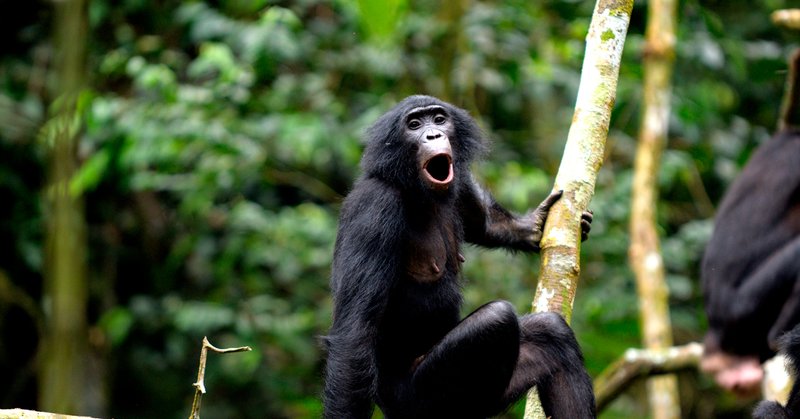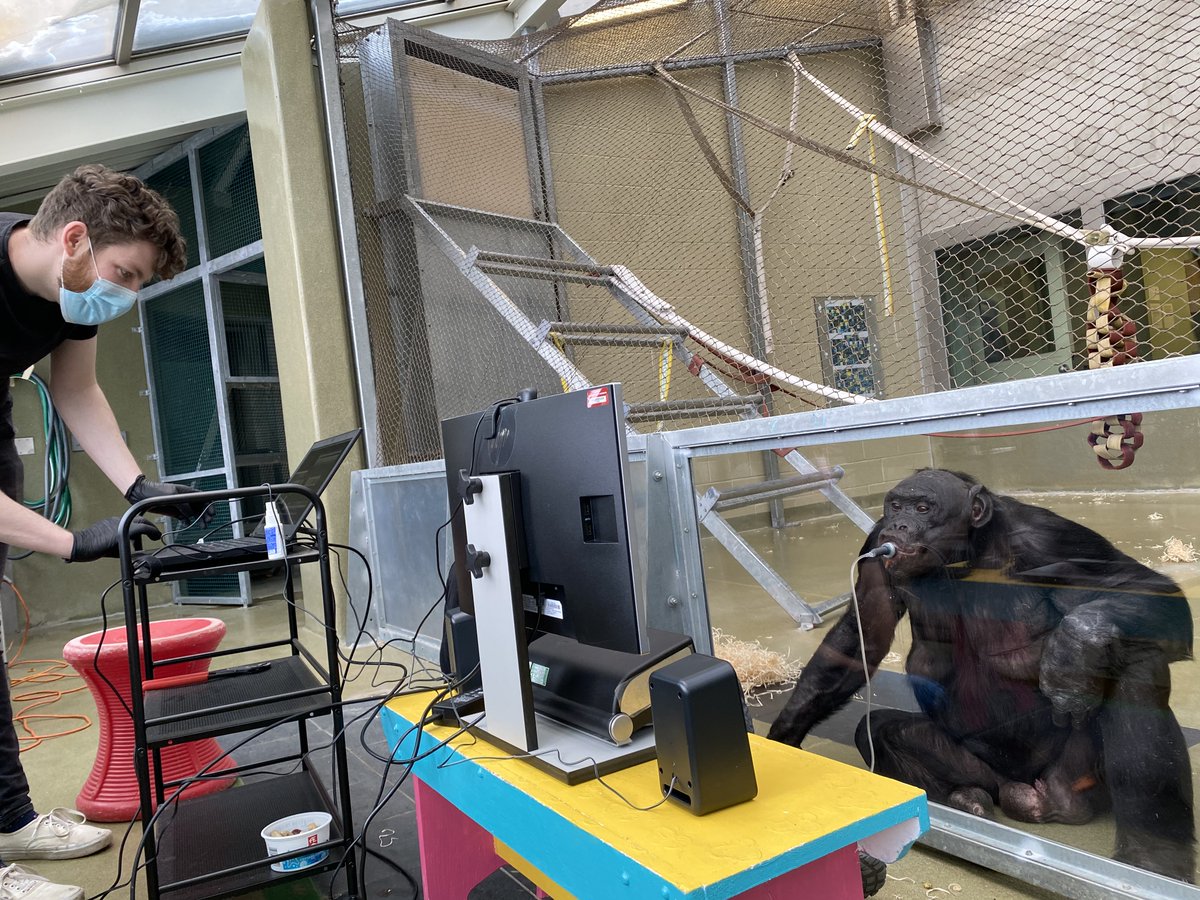
Simon W. Townsend
@SimonWTownsend
Followers
2K
Following
6K
Media
119
Statuses
3K
Assoc. Prof. (Evo Anth) @uzh_en; Interested in animal communication. Main question that bothers me: How did language evolve?
🇨🇭
Joined October 2013
Very happy to share our new paper investigating compositionality in the vocal system of wild bonobos in @ScienceMagazine led by @BerthetMelissa w/@kokolopori! @snsf_ch @UZH_Science @NCCR_Language
https://t.co/r6pIEczd9A
science.org
Compositionality, the capacity to combine meaningful elements into larger meaningful structures, is a hallmark of human language. Compositionality can be trivial (the combination’s meaning is the sum...
1
32
78
Amazing opportunity!
Come join us in @OxfordBiology at @UniofOxford ! NewAssociate Professor position in Animal Behaviour, with Merton College!
0
0
1
📢We’re recruiting! 🌳Assistant Professor in Ecology, Evolution & Conservation A permanent teaching-focused position in our vibrant, welcoming and intellectually stimulating academic community. Deadline: 7 September. Apply here: https://t.co/4FG4FDQahE
0
26
36
We feel very honoured for receiving a commendation in the International Primatological Society (IPS) Ethics, Diversity, Equality & Inclusivity awards for the Nimba Chimpanzee Project 🤩🙏❤️ @APE_Group_UZH @UZH_Science @JGISchweiz @IPS_PrimateNews
0
4
34
📣ATTENTION!!! Two PhD positions on Creativity in Wild Chimpanzees and Bonobos 🤩@snsf_ch @UZH_en @univofstandrews Come join @APE_Group_UZH & Wild Minds Lab @NakedPrimate ✨Please RT✨ @EFPrimatology @PsgbStudent @BiologicalAnth @IPS_PrimateNews @PrimateEducate
2
59
88
New paper out in eLife! 🎉 Old age variably impacts chimpanzee engagement and efficiency in stone tool use https://t.co/c7MRlkqzi4 (including videos of wild elderly chimpanzees using tools! 🪨🌰)
elifesciences.org
Long-term standardized data collection on wild western chimpanzees reveals late-life changes in stone tool use, and the extent of these changes varies between individuals.
2
13
29
Delighted to see our new paper out in @ScienceAdvances investigating the evolution of infant directed communication, led by Franziska Wegdell, Johanna Schick and Caroline Fryns @UZH_Science @cog_comp_Neuch
New research suggests infant-directed communication expanded in humans and likely emerged after diverging from our great ape common ancestor approximately 6 to 8 million years ago. Learn more in this week’s issue of Science Advances: https://t.co/IU3DX44PBb
3
12
39
🚨 Language connection FOUND in chimpanzees? 🧠🗣️ For years, scientists thought the key to human language was a fibre connection, missing in chimp brains. New high-res brain scans just changed the game. 👀🐒 📖 Read the full story: https://t.co/2uIYGgRdsX 1/n 🧵👇
4
20
51
TLDR: new paper headed up by @EleuteriVesta & with an awesome team, incl @AndreaRavignani , showing chimps have rhythm in their drumming & differences b/w east & west drum rhythms! But didn’t we know this already you ask? Well… 🧵1/16
Chimpanzee subspecies drum with distinct rhythms; a finding that could shed light on the building blocks of human musicality. 🥁 See an example of drumming below and learn more in @currentbiology: https://t.co/0oTArNZaKS
@EleuteriVesta Andrea Ravignani, Catherine Hobaiter
1
19
49
📣 PhD position in Statistical Modelling of Language Evolution at our institute, to work with Prof Balthasar Bickel on modelling language diversification, see details here: https://t.co/TfeUZBjoXq
0
5
13
Interested in the evolution of human language and in understanding the pressures that shape languages today? Come do a PhD with me! Fully funded PhD position available in my group @MPI_NL, application deadline June 2nd: https://t.co/UNtf5CxSVC
3
36
91
Our new paper is out!🐒🔊 Studying two wild chimpanzee populations, we found they flexibly adjust pant hoot acoustics to context (feed vs. travel). Most patterns are shared, but some community differences may suggest a small role for vocal usage learning. https://t.co/eeMvxqbVEO
0
12
35
How did vocal communication come to dominate human language? In our new @PLOSBiology paper @NeuroSLAMlab and I suggest the uterine environment might represent a small but significant piece of the language evolution puzzle! @NCCR_Language @UZH_Science
https://t.co/HXoe6oZipd
journals.plos.org
Whether human language evolved via a gestural or a vocal route remains an unresolved and contentious debate. This Unsolved Mystery discusses evidence suggesting that fetal auditory development and...
1
3
20
Fully funded PhD position on Hominin Life History Evolution available in my new lab @UZH_en Please retweet! Link: https://t.co/iZqnFnweDj
1
104
173
Wild bonobos—our closest living relatives—communicate using vocal calls organized in compositionally complex semantic structures that mirror key features of human language, according to a new Science study. https://t.co/55kOq9spsH
15
62
214
Exciting new methods and results by Mélissa Berthet, Martin Surbeck and Simon Townsend: https://t.co/WulUhpauJ7
science.org
In a first, researchers have seen a nonhuman animal combine different calls to make new meanings
1
7
13
Bonobos, unsere nächsten lebenden Verwandten, bilden komplexe Lautfolgen, die menschlichen Wortkombinationen ähneln: https://t.co/iPqv4qC16h
@SimonWTownsend @Mael_Lx @ISLE_uzh @NCCR_Language @UZH_Science
1
4
4
The peeps, hoots and grunts of wild bonobos, a species of great ape living in the African rainforest, can convey complex thoughts in a way that mirrors some elements of human language, a new study suggests.
nbcnews.com
Researchers spent months eavesdropping on wild bonobos at a rainforest in Congo. Their research suggests the animals can use some features of language to communicate.
3
9
22
We have lost a legend. Yesterday morning, I received the devastating news that Kanzi, the world’s most famous bonobo, died unexpectedly the day before, in the company of his bonobo family @ApeInitiative. I've written here about this tremendous loss. We will miss him dearly.
2
13
81
New paper @RSocPublishing investigating the representations underlying bonobo food and alarm calls w/Nicole Lahiff @zannaclay Amanda Epping, Jared Taglialatela and Katie Slocombe. @snsf_ch @UZH_Science @NCCR_Language
https://t.co/TBNAFozRS1
royalsocietypublishing.org
Non-human vocalizations carrying information regarding external events have been likened to referential words and are thus integral for exploring the origins of linguistic reference. Previous...
1
8
22

